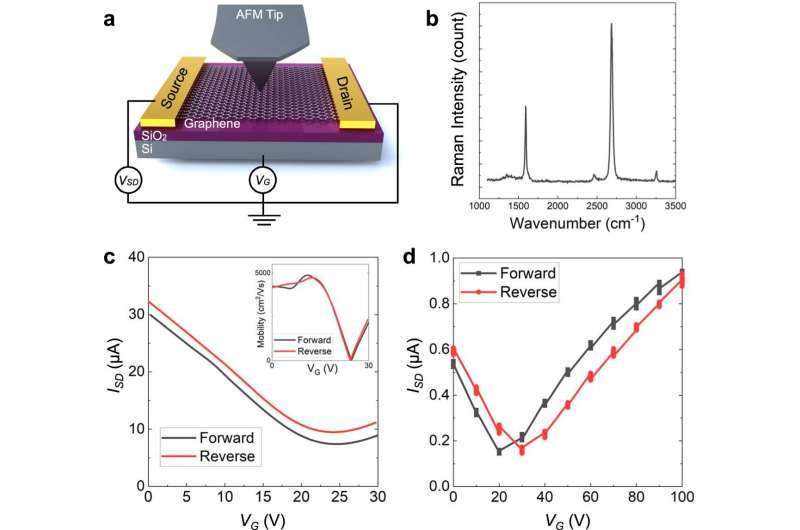
The friction on a graphene
surface can be dynamically tuned using external electric fields, according to
researchers at the University of Illinois Urbana-Champaign led by Professor
Rosa Espinosa-Marzal of the Department of Civil and Environmental Engineering.
The work is detailed in the paper, "Dynamically tuning friction at
the graphene interface using the field effect," published September 19,
2023, in the journal Nature Communications.
Friction plays a key role in both natural and engineered systems, dictating the behavior of sliding contacts, affecting the wear of materials and influencing the flow of fluids across surfaces, among other effects. Friction can be controlled passively through the selection of design components, for example material and roughness.
A more recent trend, however, has been to investigate systems whose frictional response can be dynamically tuned in situ, especially as micro- and nanoscale devices become more common. One of the more promising avenues to achieve friction control is with external electric fields that can modulate the properties of lubricants and material surfaces as well as the interactions between them.
"Novel approaches to the design of interacting surfaces are necessary to move past the state of the art," write the researchers, "and 2D materials are a new and excellent choice based on their high mechanical strength and chemical and thermal stability."
Graphene is the 2D form of carbon and is sometimes hailed as a "wonder material" because of its unique and superlative properties. Surfaces coated in graphene films generally exhibit very low friction, but the new results demonstrate that friction on graphene-coated surfaces can be "turned on" by exposing the surface to an electric field under the proper conditions. The system can then be controlled in this higher friction state before being switched back to lower friction, all without applying large electrical biases between the surfaces in contact.
"The work will be impactful in reducing energy consumption in nano- and micro-electromechanical systems, in addition to allowing dynamic control of friction while mitigating the enhanced wear and corrosion of sliding surfaces when direct bias is applied," Espinosa-Marzal said.

 Previous page
Previous page Back to top
Back to top







